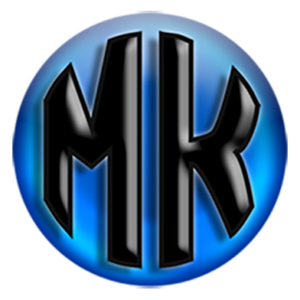The Musical Kaleidoscope Story
by Don Robertson
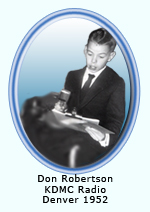
Hello. I’m Don Robertson, an American composer an author currently living near Nashville, Tennessee (Music City). Because I have spent my life discovering music and sharing it with others, I consider Musical Kaleidoscope to be my ultimate music-education project.
My Musical Kaleidoscope story is in four parts. Click the four buttons above to read the story. Below is a synopsis of my life that I first presented on this website in 2009:
I was born in Denver, Colorado on April 4th, 1942. According to my Baby Book, I was playing rumba and jazz records by the age of three. My main love was classical music, however. “Listens to symphonies and operas by the hour,” Mom wrote.
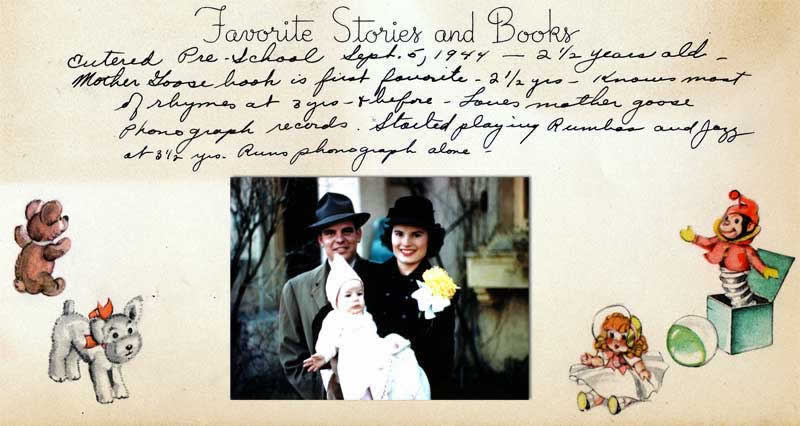
Dr. Brico
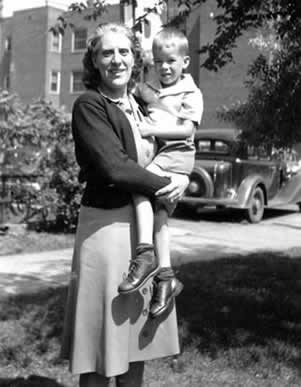
Because of my unusual interest in music, in February, 1946, my mother took me to the famous symphony conductor Antonia Brico who agreed to teach me. We called her Dr. Brico. Dr. Brico told Mom that I would be a great composer someday, and that summer, Mom took this photo of Dr. Brico and me. Dr. Brico was going to Finland to conduct the Helsinki Symphony Orchestra and wanted to give the photo to Jean Sibelius, the great Finnish composer. Meanwhile, my father was convinced that “this Brico dame” turning me into a child prodigy would ruin my life forever. When she returned from her trip, he forbade me to take any more lessons from her. The damage had already been done, however: Dr. Brico had already gotten me started on my journey as a composer of classical music.
The Zenith
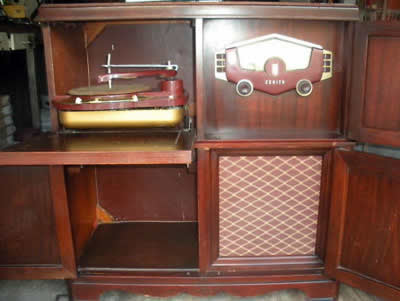
Mom and Dad had a big Zenith phonograph that played 78-rpm records. Because I listened to records all day long, it was soon moved into my bedroom. One day, when Mom was “scanning the dial” on her radio in the master bedroom, she discovered a frequency that when I played my records, she could also hear them on her radio in the master bedroom. I had no idea why or how this happened, but it did. Somehow the Zenith was modulating its signal onto an AM radio frequency carrier wave. I was elated to find that not only could I play music for myself, but for Mom as well. I began to think about the Zenith as a small radio station that broadcast my records throughout the house. That’s when the idea that I could have my own music radio station began.
KDMC RADIO
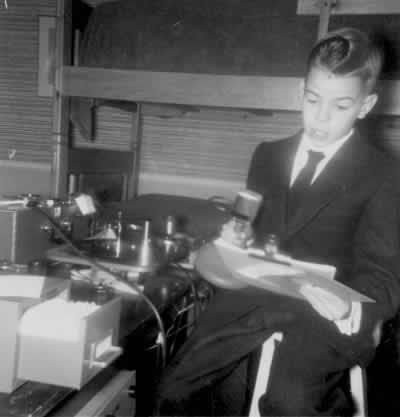
Mom and Dad belonged to the Denver Country Club, where there was an ice-skating rink that my sister and I visited in the winter months.
At the rink, there was a record player that played 78rpm RCA Victor classical “Red Seal” records for the skaters to skate to. You could not hear the music inside the rink house where the record player was, but you could hear it outside in the rink. That told me that there was a way that one could connect wires to a phonograph and play music that would be heard from speakers located far away. Following this logic, I rigged up my own homemade radio station in my bedroom, interconnecting the two record players that I owned by that time, the Eicor tape recorder that Dad had given me for Christmas in 1950, and the microphone that came with the tape recorder. I strung wires from my bedroom to the homes of my neighborhood friends using the telephone poles in the corners of our yards, and gave my friends some intercom speakers that a friend of my dad and mom had donated to the cause. I called my radio station “KDMC Radio”. My parents were shocked at the apparent dismembering of my “formerly good” equipment, and they were terrified that I would set the house on fire.
The Transmitter
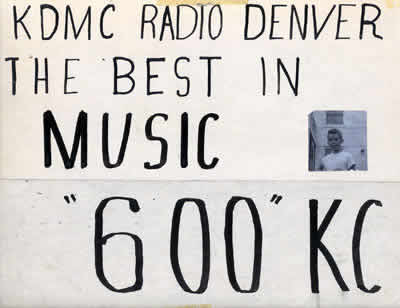
Soon, my childhood friend Rob Wilfley joined my interest in operating a small radio station. His father was a smart guy who loved to tinker with electronics. He built Rob a low-powered AM radio transmitter from drawings and instructions in an article that he had found in Popular Science magazine.
This device transmitted a signal over an area of several blocks. Rob named his station KROB, and together we formed a network called the “Western Broadcasting System”. I figured that I could build my own transmitter, and I gave the list of electronic parts from the magazine to Mom as my only request for the 1951 Christmas. After Christmas, we went shopping for parts. I attempted to build the transmitter myself, but I could not get it to work. Mom and I finally took it to a technician to complete. He worked in the transmitter building for radio station KPOF in Westminster, Colorado, just outside of Denver. Once completed, KDMC radio went online, and I began sharing my collection of 45-rpm records: music that I had discovered from my hours of radio listening: Leroy Anderson, Nat “King” Cole, Doris Day, Frank Chatsfield, David Rose, Hugo Winterhalter, and so on.
Up on the Rooftop
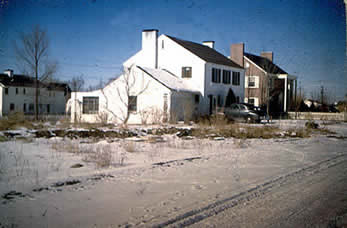
This photo of our house was taken about 1949.
I needed an antenna to make my transmitter work. I could get to the roof of our two-story house by first climbing to the top of the garage, and so I climbed onto the roof of our house and strung a wire to one of the chimneys. After Dad found out that I had been walking perilously around on our rooftop, he called a carpenter friend and he built a real antenna for me, running from chimney to chimney. Soon I was broadcasting to our neighborhood. Alas, one evening, probably in 1954, lightening struck the antenna and burned out my transmitter. That was the end of KDMC Radio.
KFEL-TV
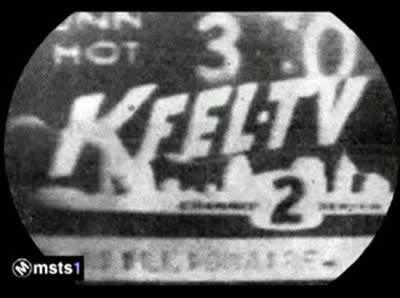
In 1952, Denver got its first TV station: KFEL-TV. I do not remember how I obtained permission to do so, but after school, Mom would drop me off at the KFEL-TV studio, and I hung out there for hours, watching live TV broadcasts being made. All of the on-air and the other people at the station seemed to like me and let me sit quietly behind the cameras while live television was underway. I used to bring home no-longer-needed advertising props and black and white slides that had been used for Denver’s first TV commercials.
A 12-Year-Old DJ
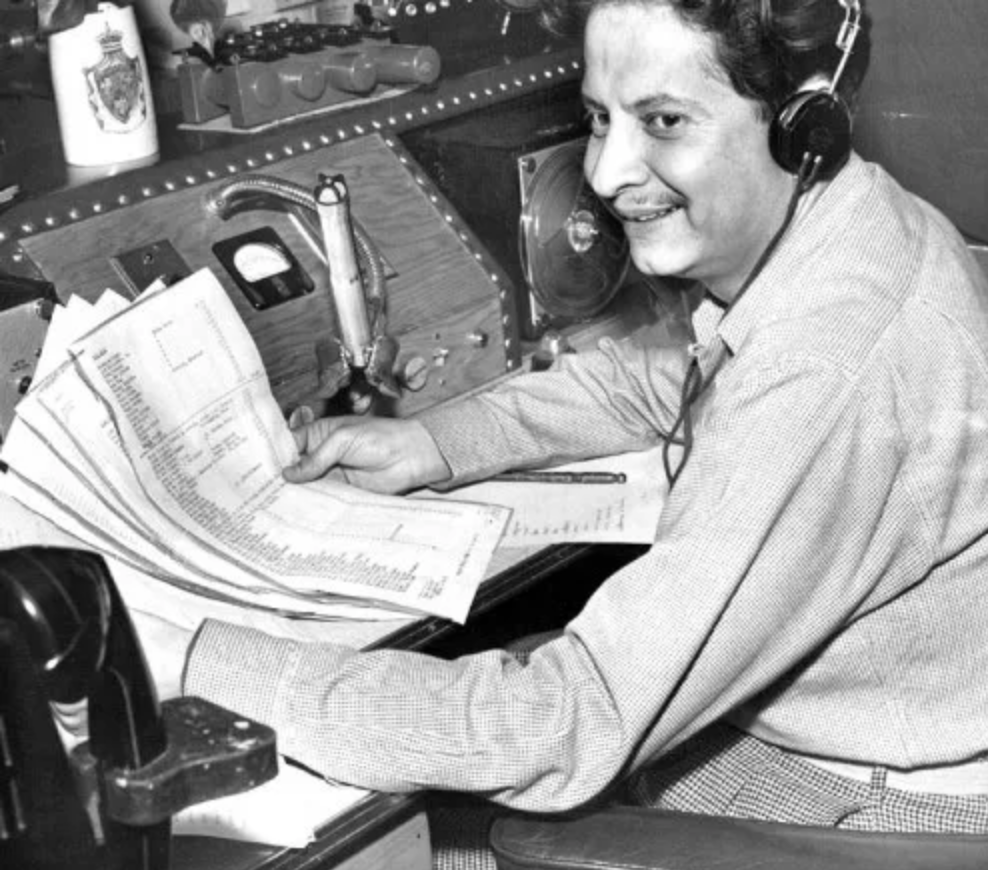
In 1954, my neighbor, Mr. James Fresques, telephoned to tell me that his friend Paco Sanchez had invited me to do a weekly half-hour program on his radio station – KFSC Radio – Denver’s only Mexican-American station. Called “Teen Tunes”, my show lasted about six months.
I have occupied my life with music, and my love of music is epitomized in the collection of recordings that I have gathered along the way. Always in the back of my mind was the thought that I would someday produce a radio show, from which I could once again share my musical discoveries.
The Birth of Musical Kaleidoscope
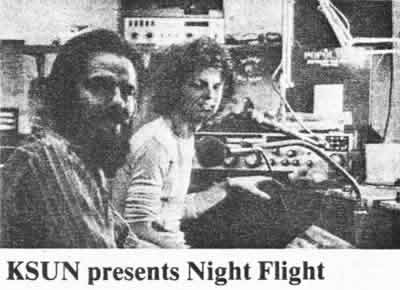
Finally in 1980, when I was living in Santa Rosa, California, I co-produced a radio show called Night Flight, broadcast on KSUN at Sonoma State College.
It was on this show that I first experimented with the musical kaleidoscope idea – bridging the gap between musical cultures and eras. This show was on the air for about six months. My co-producer used the name “Jerry Jupiter”.
I continued to collect music over the coming years, as I had always planned to begin broadcasting again. In January 1997, Mary Ellen Bickford and I conceived of the name “Musical Kaleidoscope” for the still-planned radio show. However, with the advent of internet technology, Musical Kaleidoscope grew beyond the scope of “radio” and into a full-fledged internet project.
In 2009, we created the first Musical Kaleidoscope website. During the following decade, we continued to develop content, and between 2018 and 2023, we created over 1,000 videos for eventual use by the Musical Kaleidoscope project.
